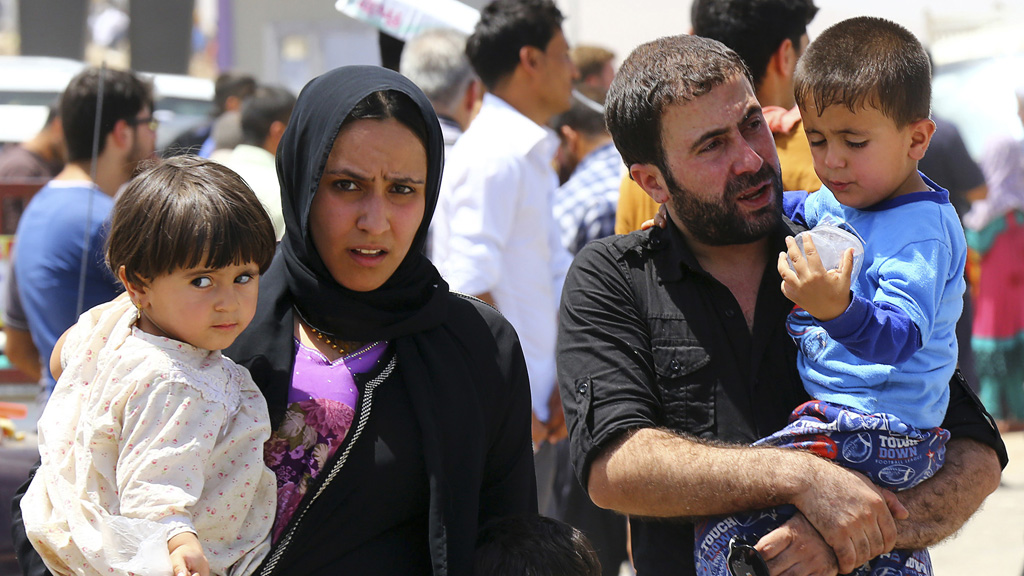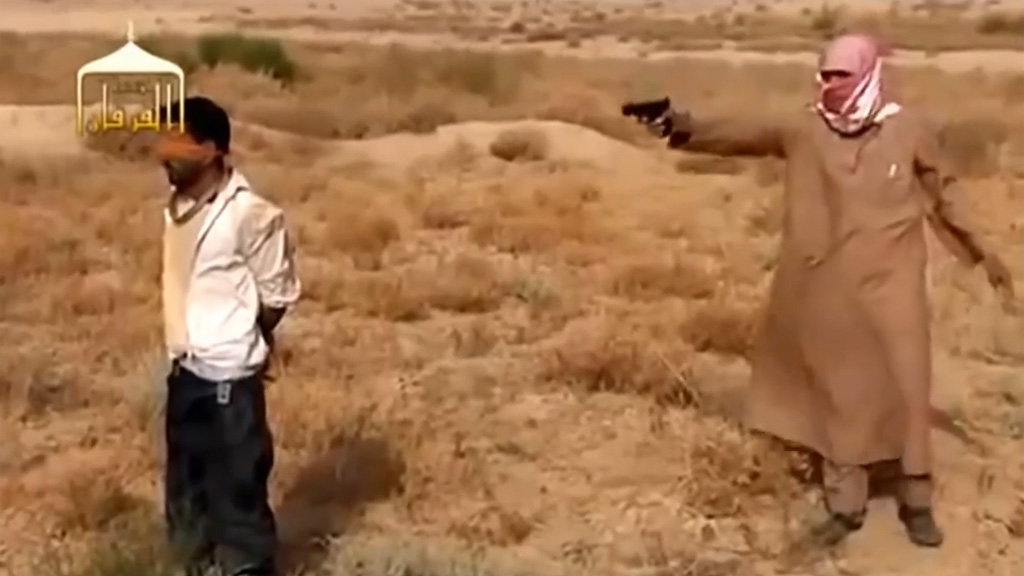Why Isis is very bad news for the people of Iraq
The Islamic State of Iraq and al-Sham’s (Isis) advance through Iraq brings with it the fear of human rights atrocities against civilians, including execution, torture and rape.

WARNING: some viewers may find images on this page distressing.
On Friday the United Nations human rights spokesman said hundreds of people had been killed after the Iraqi city of Mosul was overrun earlier in the week – many of them summarily executed.
Rupert Colville said the UN’s mission in Iraq (UNAMI) received reports that “the number of people killed in recent days may run into the hundreds and the number of wounded is said to be approaching 1,000”.
The possibility that Isis will repeat the atrocities it has committed in other parts of Iraq, and impose the same intolerant and abusive rule as it has in Syria, is deeply troubling. Nadim Houry, Human Rights Watch
He also reported summary executions in Mosul, including 17 civilians in one street, the kidnapping of 16 Georgians, and the suicides of four women after they had been raped.
Prisoners released by the militants from Mosul prison had been looking to exact revenge on those responsible for their incarceration. Some went to Tikrit and killed seven former prison officers there, Mr Colville said.
There were also reports that the Sunni militant group had executed 1,700 Shia military prisoners in Tikrit, while pardoning 2,500 Sunni soldiers.
Above: Isis fighters parade through Mosul
Additionally, hundreds of thousands of people have fled Mosul, many with little more than the clothes they were wearing.
‘Deeply troubling’
Isis, whose stated aim is the establishment of a caliphate governed under a strict interpretation of Sharia law, has a terrifying record on human rights. It disregards the Syria/Iraq border and imposes strict rules over areas it dominates.
Videos found by Channel 4 News on Isis social media accounts show the brutal measures the group takes – including drive-by shootings, executions and even forcing an “apostate” to dig his own grave.
The content of the videos is too horrific to share, but stills from the videos can be seen below.

Above: an Isis fighter prepares to execute a prisoner
Human Rights Watch warned on Friday that it has previously documented crimes committed by Isis, including car and suicide bomb attacks in civilian areas, summary executions, torture in detention, discrimination against women, and destruction of religious property.
“The possibility that Isis will repeat the atrocities it has committed in other parts of Iraq, and impose the same intolerant and abusive rule as it has in Syria, is deeply troubling,” said Nadim Houry, deputy Middle East director at Human Rights Watch.
“But the Iraqi government needs to deal with the situation without the brutal tactics for which civilians elsewhere in the country have long been paying a heavy price.”
Women and children
Though Human Rights Watch has been unable to document Isis actions in areas it controls since 10 June, prior to that date it had documented a range of incidents in Mosul and in Syria.
In May, Human Rights Watch said, there were 10 summary executions, two kidnappings, several attacks on journalists and enforced taxation of local businesses in Mosul.

In Isis-controlled areas in Syria, the charity has documented the imposition of strict and discriminatory rules over woman and girls and the active recruitment of child soldiers.
On 29 May, according to accounts from first responders and local Kurdish officials, Isis fighters entered the village of al-Taliliya in northern Syria without resistance and executed at least 15 civilians, including seven children.
Government ‘excesses’
However, Mr Colville also warned that there are reports that the Iraqi military had also caused a number of civilian deaths.
“We’ve also had reports suggesting that government forces have also committed excesses, in particular the shelling of civilian areas on 6 and 8 June in Mosul, resulting in a large number of civilian casualties,” he said.
“There are claims that up to 30 civilians may have been killed during this shelling.
“We also received reports that government forces were at one point not allowing people to leave from Mosul as they tried to do so and people were actually being turned back from checkpoints on the outskirts of the city.”
Amnesty International has warned about the Iraqi government’s poor record of human rights violations, including a high number of executions, torture and prisoners being detained for long periods of time without charge.
Earlier this year, Amnesty International Middle East and North Africa Deputy Director Said Boumedouha said: “Torture and other ill-treatment in prisons remain rampant. Detainees languish in prison without charge or face unfair trials, and executions are spiralling.”